Jonathan Goodman ND
See book keywords and concepts |
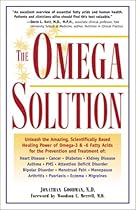 Ginkgo and Stroke Recovery
The evidence is still preliminary, but research suggests that ginkgo biloba, an herb that's received a lot of attention for its role in preventing memory loss, also may play a role in helping people recover from strokes.
Ginkgo reduces the tendency of platelets to form clots. It essentially makes blood "thinner" and helps increase circulation in the brain. It also appears to strengthen blood vessels, which reduces the risk of bleeding.
Ginkgo isn't a replacement for conventional stroke therapies, but it may be helpful as pan of an overall treatment plan. Ginkgo and Stroke Recovery
The evidence is still preliminary, but research suggests that ginkgo biloba, an herb that's received a lot of attention for its role in preventing memory loss, also may play a role in helping people recover from strokes.
Ginkgo reduces the tendency of platelets to form clots. It essentially makes blood "thinner" and helps increase circulation in the brain. It also appears to strengthen blood vessels, which reduces the risk of bleeding.
Ginkgo isn't a replacement for conventional stroke therapies, but it may be helpful as pan of an overall treatment plan. |
David Winston, RH(AHG), and Steven Maimes
See book keywords and concepts |
 John's wort, ginkgo, and holy basil).
In one remarkable case from many years ago, I had an opportunity to use a similar formula with great success. A friend's wife came down with bacterial meningitis. Luckily, they caught it early enough. She was rushed to the hospital and given intravenous antibiotics. Her life was saved and she was discharged from the hospital, but she still had severe cognitive problems. Her ability to hear, see, speak, and smell all were seriously impaired. She was unable to hold a conversation, work, or read; even food had a strange taste. John's wort, ginkgo, and holy basil).
In one remarkable case from many years ago, I had an opportunity to use a similar formula with great success. A friend's wife came down with bacterial meningitis. Luckily, they caught it early enough. She was rushed to the hospital and given intravenous antibiotics. Her life was saved and she was discharged from the hospital, but she still had severe cognitive problems. Her ability to hear, see, speak, and smell all were seriously impaired. She was unable to hold a conversation, work, or read; even food had a strange taste. |
| Nootropic herbs include the following: bacopa, bhringaraj (eclipta), ginkgo, gotu kola, lavender, rosemary, white peony, and yuan zhi.
Adaptogen Notes
• Rhaponticum and schisandra enhance reading comprehension, aptitude, and speed.
• Rhodiola enhances a person's ability for memorization and prolonged concentration. Regular use can lead to improvements in learning and memory retention.
• Schisandra has an unusual dual effect on the nervous system. It is a mild stimulant that enhances reflexes, work performance, and mental activity. |
Michael T. Murray
See book keywords and concepts |
 We would also recommend consulting your physician for proper wound care (even minor nicks or slivers need immediate attention) and using either ginkgo biloba or grapeseed extract to support optimal circulation.
Ginkgo biloba extract (GBE) is probably best known for its ability to improve blood flow to the brain, but it also improves blood flow to the hands and feet. The most common symptoms of peripheral arterial disease are numbness, tingling, and intermittent claudication—a painful cramp or tightness produced with exertion. Intermittent claudication usually affects the calf muscle. We would also recommend consulting your physician for proper wound care (even minor nicks or slivers need immediate attention) and using either ginkgo biloba or grapeseed extract to support optimal circulation.
Ginkgo biloba extract (GBE) is probably best known for its ability to improve blood flow to the brain, but it also improves blood flow to the hands and feet. The most common symptoms of peripheral arterial disease are numbness, tingling, and intermittent claudication—a painful cramp or tightness produced with exertion. Intermittent claudication usually affects the calf muscle. |
| Ginkgo biloba extract (24% ginkgo flavon-glycosides)
120 to 240 mg
Best choice for most people over age 50. Protects brain and vascular lining. Very important in improving blood flow to the extremities, neuropathy, and foot ulcers.
Grapeseed extract or pine bark extract (95% procyanidolic oligomers)
150 to 300 mg
Systemic antioxidant; best choice for most people under 50, especially for retinopathy, high blood pressure, easy bruising, and poor wound healing. Also specific for the lungs, varicose veins, and protection against heart disease. |
J. Douglas Bremner
See book keywords and concepts |
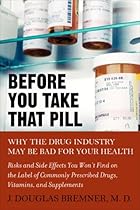 Damiana (Turnera diffusa) is a flowering shrub that was traditionally used as an aphrodisiac and as a treatment for various sexual disorders; there are no current studies to confirm its effectiveness, although it is apparently safe. ginkgo biloba increases arterial blood flow, which may have a positive effect on male sexual function. Muira puama (Ptychopetalum olacoides) is promoted for ED and lack of libido. There are no major toxicities, although there are no studies demonstrating efficacy. I would recommend saving your money instead of buying any of these remedies. Damiana (Turnera diffusa) is a flowering shrub that was traditionally used as an aphrodisiac and as a treatment for various sexual disorders; there are no current studies to confirm its effectiveness, although it is apparently safe. ginkgo biloba increases arterial blood flow, which may have a positive effect on male sexual function. Muira puama (Ptychopetalum olacoides) is promoted for ED and lack of libido. There are no major toxicities, although there are no studies demonstrating efficacy. I would recommend saving your money instead of buying any of these remedies. |
The Editors of FC&A
See book keywords and concepts |
| In their
The herbal remedy ginkgo biloba is good for your eyes, too. It works as an antioxidant and widens, or dilates, your blood vessels.
PCO is also found inside grape seeds and is sold as pine bark (pycnogenol) or grape seed extract. You can get these antiox idants naturally, however, from grape skins, other citrus peels, apples, onions, blueberries, cranberries, and peanuts. studies, they found that zinc actually helps other substances shield your eyes from AMD. |
Jonathan V. Wright, M.D. and Alan R. Gaby, M.D.
See book keywords and concepts |
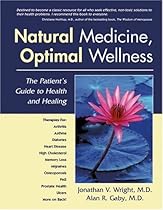 At that point, we added in ginkgo to try to sharpen memory further, as well as for its action in improving small-blood-vessel circulation and erectile function. One year later, Mrs. Parnelli told me she hadn't found anymore socks in the refrigerator, only "the occasional memory lapse like the rest of us," and Mr. Parnelli hadn't forgotten the boat or the dog since. At that point, we added in ginkgo to try to sharpen memory further, as well as for its action in improving small-blood-vessel circulation and erectile function. One year later, Mrs. Parnelli told me she hadn't found anymore socks in the refrigerator, only "the occasional memory lapse like the rest of us," and Mr. Parnelli hadn't forgotten the boat or the dog since. |
The Editors of FC&A
See book keywords and concepts |
| Before taking ginkgo supplements, make sure yours is made from the plant's leaves and not the seeds, which could be harmful. Also, don't take it without your doctor's approval if you're already on aspirin or warfarin.
Crack cramps with nuts. Those suffering from intermittent claudication tend to be deficient in vitamin E. This makes sense, since the antioxidant is important for smooth blood flow. Nuts are one of the best natural sources of this nutrient, along with sunflower seeds, wheat germ, vegetable oils, and green leafy vegetables.
Beat leg pain with bulbs. |
Bradley J. Willcox, M.D., D. Craig Willcox, Ph.D., Makoto Suzuki, M.D.
See book keywords and concepts |
 To shell and peel ginkgo nuts, use a nutcracker to remove the shell; soak the nuts in boiling water for 8 to 10 minutes to soften the skin, then peel the skin off. Because canned nuts are packed in brine, don't forget to rinse them well under running water if you go that route.
2 tablespoons dried hijiki seaweed 1 Vz cups bonito or kelp broth (see
Vi cup shelled and peeled ginkgo nuts page 229)
10 ounces water-packed firm light tofu 1 tablespoon sake rice wine
2V2 tablespoons kudzu powder or 2 tablespoons low-sodium soy sauce
2 tablespoons arrowroot powder V?. To shell and peel ginkgo nuts, use a nutcracker to remove the shell; soak the nuts in boiling water for 8 to 10 minutes to soften the skin, then peel the skin off. Because canned nuts are packed in brine, don't forget to rinse them well under running water if you go that route.
2 tablespoons dried hijiki seaweed 1 Vz cups bonito or kelp broth (see
Vi cup shelled and peeled ginkgo nuts page 229)
10 ounces water-packed firm light tofu 1 tablespoon sake rice wine
2V2 tablespoons kudzu powder or 2 tablespoons low-sodium soy sauce
2 tablespoons arrowroot powder V?. |
| Roast the ginkgo nuts in a dry skillet over low heat for 3 to 4 minutes, or until partly browned. Let cool.
Wrap the tofu with two paper towels and place on a plate; microwave on medium for 3 minutes. Transfer the tofu to a large bowl and mash. Add the hijiki, ginkgo, and Vi tablespoon kudzu powder (or V2 tablespoon arrowroot powder) and mix well by hand. Evenly divide the mixture and make four 1-inch-thick patties.
Spray a large skillet with canola oil and heat over medium heat. Cook the patties for 3 minutes, or until golden brown. |
Abram Hoffer, PhD, MD, FRCP(C) and Dr. Jonathan Prousjy, DPHE, DSC, ND, FRSH
See book keywords and concepts |
 He was also prescribed ginkgo biloba extract (180 mg daily) to help with depression, for the side effects of risperidone, and for erectile dysfunction. Another intramuscular injection of folic acid (2.5 mg) and vitamin B-12 (5000 meg) was given to the patient.
The patient had one more follow-up on June 27, 2005. He had reduced the risperidone to 2 mg daily on his own. He also discontinued the citalopram and bupropion hydrochloride. He did not feel worse than before and, in fact, indicated that he was more alert and required less sleep. He was also prescribed ginkgo biloba extract (180 mg daily) to help with depression, for the side effects of risperidone, and for erectile dysfunction. Another intramuscular injection of folic acid (2.5 mg) and vitamin B-12 (5000 meg) was given to the patient.
The patient had one more follow-up on June 27, 2005. He had reduced the risperidone to 2 mg daily on his own. He also discontinued the citalopram and bupropion hydrochloride. He did not feel worse than before and, in fact, indicated that he was more alert and required less sleep. |
Jonathan V. Wright, M.D. and Alan R. Gaby, M.D.
See book keywords and concepts |
 Gingko biloba extract (standardized to contain 24% ginkgo heterosides), 40 mg, 3 times a day.
• High-potency multiple vitamin/mineral.
• Assess digestion and absorption; use appropriate digestive aids when indicated.
Summary of Recommendations for Treating Age-Related Memory Loss and Depression
Primary Recommendations:
• Intramuscular injections of vitamin B12 (often combined with folic acid and other B-vitamins).
Other Recommendations:
• Acetyl-L-carnitine, 500 mg, 3 times a day. Gingko biloba extract (standardized to contain 24% ginkgo heterosides), 40 mg, 3 times a day.
• High-potency multiple vitamin/mineral.
• Assess digestion and absorption; use appropriate digestive aids when indicated.
Summary of Recommendations for Treating Age-Related Memory Loss and Depression
Primary Recommendations:
• Intramuscular injections of vitamin B12 (often combined with folic acid and other B-vitamins).
Other Recommendations:
• Acetyl-L-carnitine, 500 mg, 3 times a day. |
Christian Ratsch
See book keywords and concepts |
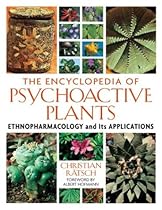 Johann Wolfgang von Goethe West-ostlicher Divan [West-Eastern Divan] (1819/20)
422 A recent double-blind study found that regular administration of ginkgo extracts led to substantial and significant improvements in memory performance in people affected by senile dementia of the Alzheimer's type (Hofferberth 1994). the European scene contains the following ingredients:
The packaging of the American product Herbal Ecstacy. The "psychedelic" butterfly is intended to symbolize the purported effects ("soul flight").
The ginkgo tree (Ginkgo biloba) is an ancient Asian medicinal plant. Johann Wolfgang von Goethe West-ostlicher Divan [West-Eastern Divan] (1819/20)
422 A recent double-blind study found that regular administration of ginkgo extracts led to substantial and significant improvements in memory performance in people affected by senile dementia of the Alzheimer's type (Hofferberth 1994). the European scene contains the following ingredients:
The packaging of the American product Herbal Ecstacy. The "psychedelic" butterfly is intended to symbolize the purported effects ("soul flight").
The ginkgo tree (Ginkgo biloba) is an ancient Asian medicinal plant. |
David Heber, M.D., Ph.D.
See book keywords and concepts |
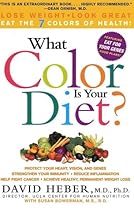 Leaf extracts contain ginkgo flavonoid glycosides and terpene lactones, which are thought to be the active agents in ginkgo. There is some evidence that ginkgo can increase blood flow in the brain and improve mental function in the early stages of Alzheimer's disease and other forms of dementia. It can also inhibit platelet-activating factor, giving rise to the recommendation that this herb be avoided by people on blood-thinning agents. Much more work needs to be done to document the exact mechanisms at work here. Leaf extracts contain ginkgo flavonoid glycosides and terpene lactones, which are thought to be the active agents in ginkgo. There is some evidence that ginkgo can increase blood flow in the brain and improve mental function in the early stages of Alzheimer's disease and other forms of dementia. It can also inhibit platelet-activating factor, giving rise to the recommendation that this herb be avoided by people on blood-thinning agents. Much more work needs to be done to document the exact mechanisms at work here. |
Josef A. Brinckmann and Michael P. Lindenmaier
See book keywords and concepts |
 HPLC is almost exclusively used for the quantification of the flavonol glycosides in a hydrolyzed ginkgo extract wherein quercetin, kaempferol and isorhamnetin serve as quantitative and qualitative reference standards (a molecular mass factor is applied for the calculation of the glycoside content). The terpene-lactones can be quantified with HPLC as well, using refractive index (RI) or evaporative light scattering detection (ELSD); see also USNF and excellent analytical reviews in [4, 18]. A quantitative LC-MS method for the detection of the allergenic ginkgolic acids can be found in [19]. HPLC is almost exclusively used for the quantification of the flavonol glycosides in a hydrolyzed ginkgo extract wherein quercetin, kaempferol and isorhamnetin serve as quantitative and qualitative reference standards (a molecular mass factor is applied for the calculation of the glycoside content). The terpene-lactones can be quantified with HPLC as well, using refractive index (RI) or evaporative light scattering detection (ELSD); see also USNF and excellent analytical reviews in [4, 18]. A quantitative LC-MS method for the detection of the allergenic ginkgolic acids can be found in [19]. |
| A phosphatidylcholine (Phytosome®) complex of ginkgo biloba extract (Ginkgose-lect ") demonstrated significant cardioprotective effects in rats [14a]. |
David Heber, M.D., Ph.D.
See book keywords and concepts |
 Ginkgo Biloba
The ginkgo tree is a 150-million-year-old dinosaur of the plant world, and is among the oldest living species on earth. The trees nearly became extinct during the Ice Age, but wild stands of the trees survived in parts of China. Due to deforestation they almost became extinct again, but according to legend were saved by Chinese monks who considered them holy. In this ancient tree species, there are separate male and female trees. The female trees bear a fruit called the "ginkgo nut" (even though it is not a nut). Ginkgo Biloba
The ginkgo tree is a 150-million-year-old dinosaur of the plant world, and is among the oldest living species on earth. The trees nearly became extinct during the Ice Age, but wild stands of the trees survived in parts of China. Due to deforestation they almost became extinct again, but according to legend were saved by Chinese monks who considered them holy. In this ancient tree species, there are separate male and female trees. The female trees bear a fruit called the "ginkgo nut" (even though it is not a nut). |
Joseph Glenmullen, M.D.
See book keywords and concepts |
 Having been used for centuries in Chinese herbal medicine, ginkgo biloba has become popular in this country as a memory-enhancing agent. In their article in the Journal of Sex and Marital Therapy, Cohen and Bartlik report that ginkgo biloba improved libido, erectile functioning, and the ability to orgasm in patients with antidepres-sant-induced sexual dysfunction. The dosage of ginkgo biloba taken by the patients ranged from 60 to 240 milligrams a day. Having been used for centuries in Chinese herbal medicine, ginkgo biloba has become popular in this country as a memory-enhancing agent. In their article in the Journal of Sex and Marital Therapy, Cohen and Bartlik report that ginkgo biloba improved libido, erectile functioning, and the ability to orgasm in patients with antidepres-sant-induced sexual dysfunction. The dosage of ginkgo biloba taken by the patients ranged from 60 to 240 milligrams a day. |
Mike Adams, the Health Ranger
See article keywords and concepts |
 There are far greater benefits from physical exercise and breathing therapy and other nutritional supplements. Ginkgo's great, but don't use it alone, use it in conjunction with other nutritional elements to boost your brain function.
Now, let's move on to perhaps the most important thing you can do to boost brain function and appear younger: engage in brain exercise and avoid those activities that dumb you down. So, right off the bat here we've got to mention television. If you spend a lot of time watching television, you are dumbing down your brain. There's no question about it. There are far greater benefits from physical exercise and breathing therapy and other nutritional supplements. Ginkgo's great, but don't use it alone, use it in conjunction with other nutritional elements to boost your brain function.
Now, let's move on to perhaps the most important thing you can do to boost brain function and appear younger: engage in brain exercise and avoid those activities that dumb you down. So, right off the bat here we've got to mention television. If you spend a lot of time watching television, you are dumbing down your brain. There's no question about it. |
Dr. Jonathan Prousky, BPHE, BSc, ND, FRSH
See book keywords and concepts |
 She was diagnosed with GAD and prescribed a program of 120 mg/day of ginkgo biloba extract to help with her sexual dysfunction, 1 teaspoon of fish oil, and niacinamide at increasing doses until 1000 mg three times daily was reached.
At a follow-up appointment on September 9, 2004, the patient complained of feeling sick and nauseous with the niacinamide. She also reported feeling paranoid and panicky. The patient had experienced anxiety for the previous 2 weeks and was crying all the time. She was diagnosed with GAD and prescribed a program of 120 mg/day of ginkgo biloba extract to help with her sexual dysfunction, 1 teaspoon of fish oil, and niacinamide at increasing doses until 1000 mg three times daily was reached.
At a follow-up appointment on September 9, 2004, the patient complained of feeling sick and nauseous with the niacinamide. She also reported feeling paranoid and panicky. The patient had experienced anxiety for the previous 2 weeks and was crying all the time. |
Mike Adams, the Health Ranger
See article keywords and concepts |
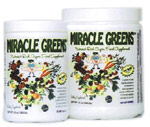 Things such as vitamin C, vitamin E, ginkgo biloba and aloe vera, just to name a few.
Mike: You even have aloe in it, huh?
Wright: Yes.
Mike: Excellent.
Wright: So you can see that we stack up much better against all the other greens. Like I said, we're made from organic barley, so we're less reactive.
Mike: Outstanding. For the listeners here, I want to add my own personal opinion on this. Spirulina is an excellent source of trace vitamins, vitamin B12, and it has a little GLA oil in it too. It's ocean dried blue-green algae, and it's an outstanding health product. Things such as vitamin C, vitamin E, ginkgo biloba and aloe vera, just to name a few.
Mike: You even have aloe in it, huh?
Wright: Yes.
Mike: Excellent.
Wright: So you can see that we stack up much better against all the other greens. Like I said, we're made from organic barley, so we're less reactive.
Mike: Outstanding. For the listeners here, I want to add my own personal opinion on this. Spirulina is an excellent source of trace vitamins, vitamin B12, and it has a little GLA oil in it too. It's ocean dried blue-green algae, and it's an outstanding health product. |
Mike Adams, the Health Ranger
See article keywords and concepts |
 You know, like silimarin, curcumin and ginkgo biloba. These things are known to directly block glutamate receptors and reduce excitotoxicity. Curcumin is very potent. Most of your flavonoids.
Magnesium is particularly important, because magnesium can block the MNDA glutamate type receptor. That's its natural function, so it significantly reduces toxicity. Vitamin E succinate is powerful at inhibiting excitotoxicity, as are all of your antioxidants. They found combinations of B vitamins also block excitotoxicity.
Mike: Let's talk about restaurants. You know, like silimarin, curcumin and ginkgo biloba. These things are known to directly block glutamate receptors and reduce excitotoxicity. Curcumin is very potent. Most of your flavonoids.
Magnesium is particularly important, because magnesium can block the MNDA glutamate type receptor. That's its natural function, so it significantly reduces toxicity. Vitamin E succinate is powerful at inhibiting excitotoxicity, as are all of your antioxidants. They found combinations of B vitamins also block excitotoxicity.
Mike: Let's talk about restaurants. |
Ronald L. Hoffman, M.D.
See book keywords and concepts |
 The plant extracts are used to treat heart disease, circulatory problems, asthma, bronchitis, senility (including loss of memory and attention), vision problems in the elderly, and accidents involving brain trauma. ginkgo has helped patients suffering from Raynaud's disease, in which the hands and feet become painfully cold and white because of reduced circulation. Studies show that the plant contains not only bioflavonoids and beneficial acids but also chemicals unique to the ginkgo plant, called ginkgolides. It has marked effects on the central nervous system in humans. The plant extracts are used to treat heart disease, circulatory problems, asthma, bronchitis, senility (including loss of memory and attention), vision problems in the elderly, and accidents involving brain trauma. ginkgo has helped patients suffering from Raynaud's disease, in which the hands and feet become painfully cold and white because of reduced circulation. Studies show that the plant contains not only bioflavonoids and beneficial acids but also chemicals unique to the ginkgo plant, called ginkgolides. It has marked effects on the central nervous system in humans. |
Jonathan V. Wright, M.D. and Alan R. Gaby, M.D.
See book keywords and concepts |
 Bilberry and ginkgo, herbal medications, contain flavonoids and other substances important to the retina. Vitamin A and copper ..."
"Hold on," Elaine said. "I can't remember all of this."
"You don't need to. There are several 'combination formulas' available in natural-food stores that contain most or all of these ingredients."
"IVs, digestive aids, and a combination formula with the nutrients you've recommended. Anything else?" Tom asked.
"The tests will tell us if amino acids, testosterone, and possibly other hormones are advisable. Bilberry and ginkgo, herbal medications, contain flavonoids and other substances important to the retina. Vitamin A and copper ..."
"Hold on," Elaine said. "I can't remember all of this."
"You don't need to. There are several 'combination formulas' available in natural-food stores that contain most or all of these ingredients."
"IVs, digestive aids, and a combination formula with the nutrients you've recommended. Anything else?" Tom asked.
"The tests will tell us if amino acids, testosterone, and possibly other hormones are advisable. |
| Ginkgo, acetyl-L-carnitine, and phos-phatidylserine all have had impressive studies showing their ability to improve memory and depression, especially when we're older. Let's wait to see how Mr. Parnelli does on the 'home repair' items first, then we can consider using one or more of those."
As expected, Mr. Parnelli's tests disclosed weak digestive function, low amino acids, many low minerals, and low DHEA. |
Bradley J. Willcox, M.D., D. Craig Willcox, Ph.D., Makoto Suzuki, M.D.
See book keywords and concepts |
 Most Asian food stores carry ginkgo nuts with shells. Canned unshelled and peeled nuts are also available, but they can be mealier and less fresh. To shell and peel ginkgo nuts, use a nutcracker to remove the shell; soak the nuts in boiling water for 8 to 10 minutes to soften the skin, then peel the skin off. Because canned nuts are packed in brine, don't forget to rinse them well under running water if you go that route. Most Asian food stores carry ginkgo nuts with shells. Canned unshelled and peeled nuts are also available, but they can be mealier and less fresh. To shell and peel ginkgo nuts, use a nutcracker to remove the shell; soak the nuts in boiling water for 8 to 10 minutes to soften the skin, then peel the skin off. Because canned nuts are packed in brine, don't forget to rinse them well under running water if you go that route. |
David Heber, M.D., Ph.D.
See book keywords and concepts |
 Leaf extracts contain ginkgo flavonoid glycosides and terpene lactones, which are thought to be the active agents in ginkgo. There is some evidence that ginkgo can increase blood flow in the brain and improve mental function in the early stages of Alzheimer's disease and other forms of dementia. It can also inhibit platelet-activating factor, giving rise to the recommendation that this herb be avoided by people on blood-thinning agents. Much more work needs to be done to document the exact mechanisms at work here. Leaf extracts contain ginkgo flavonoid glycosides and terpene lactones, which are thought to be the active agents in ginkgo. There is some evidence that ginkgo can increase blood flow in the brain and improve mental function in the early stages of Alzheimer's disease and other forms of dementia. It can also inhibit platelet-activating factor, giving rise to the recommendation that this herb be avoided by people on blood-thinning agents. Much more work needs to be done to document the exact mechanisms at work here. |
The Editors of FC&A
See book keywords and concepts |
| Don't take ginkgo along with aspirin, warfarin, or any other blood-thinning medication. And be patient. It could take four to six weeks for the full effect to kick in.
Remarkable way to outsmart Alzheimer's
Protection from Alzheimer's disease may come from a surprising source - cholesterol-lowering drugs. According to a study at the Boston University School of Medicine, commonly prescribed drugs called statins could lower your risk of developing Alzheimer's.
"This study confirms and extends previous reports and is the largest study on this topic in the U.S.," says lead researcher Dr. |
Alan R. Gaby, M.D., Jonathan V. Wright, M.D., Forrest Batz, Pharm.D. Rick Chester, RPh., N.D., DipLAc. George Constantine, R.Ph., Ph.D. Linnea D. Thompson, Pharm.D., N.D.
See book keywords and concepts |
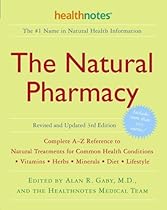 A comparison of placebo-controlled trials of ginkgo for Alzheimer's disease concluded that the herb compared favorably with two prescription drugs, donepezil and tacrine, commonly used to treat the condition.63 Research studies have used 120 to 240 mg of
GBE, standardized to contain 6% terpene lactones and 24% flavone glycosides per day, generally divided into two or three portions. GBE may need to be taken for six to eight weeks before desired actions are noticed.
Huperzine A is a substance found in huperzia (page 694) (Huperzia serrata), a Chinese medicinal herb. A comparison of placebo-controlled trials of ginkgo for Alzheimer's disease concluded that the herb compared favorably with two prescription drugs, donepezil and tacrine, commonly used to treat the condition.63 Research studies have used 120 to 240 mg of
GBE, standardized to contain 6% terpene lactones and 24% flavone glycosides per day, generally divided into two or three portions. GBE may need to be taken for six to eight weeks before desired actions are noticed.
Huperzine A is a substance found in huperzia (page 694) (Huperzia serrata), a Chinese medicinal herb. |












